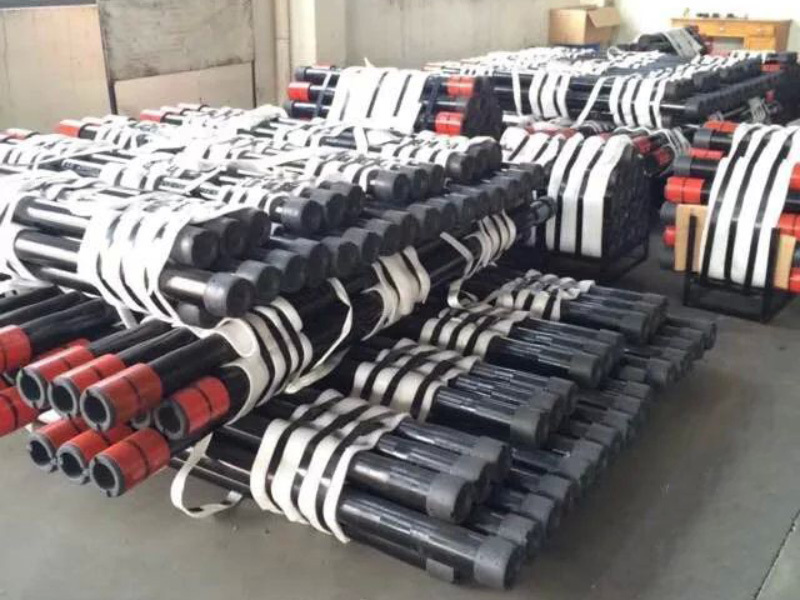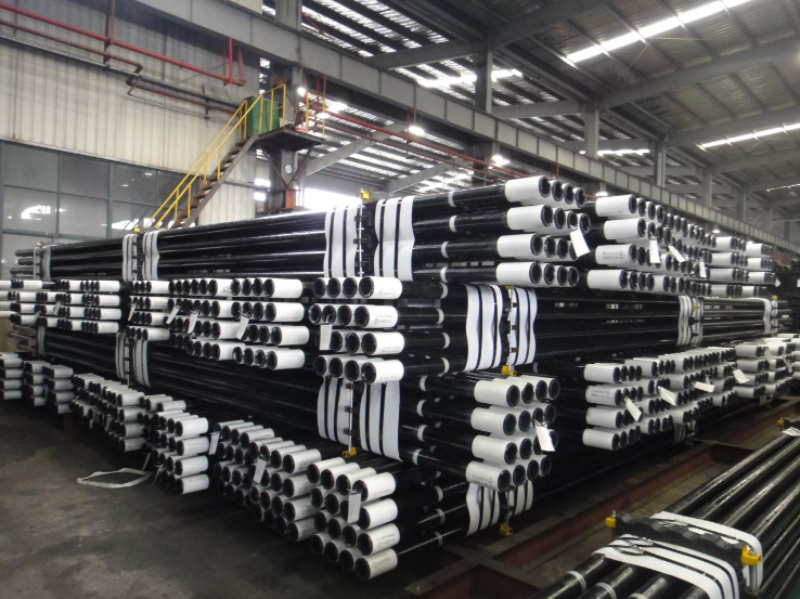Leading Smls Pipe and fittings supplier from China since 1991
What Makes Steel Casing Pipe Ideal for Insulating Electrical Components?
What Makes Steel Casing Pipe Ideal for Insulating Electrical Components? Table of Contents Introduction Understanding Steel Casing Pipe Key Properties of Steel Casing Pipe Insulating Properties of Steel Casing Pipe Durability and Strength: Why It Matters Thermal Resistance: Keeping Electrical Components Safe Safety Features of Steel Casing Pipe Applications in Elec
Jul 01,2025

What Makes Steel Casing Pipe Ideal for Insulating Electrical Components?
Table of Contents
- Introduction
- Understanding Steel Casing Pipe
- Key Properties of Steel Casing Pipe
- Insulating Properties of Steel Casing Pipe
- Durability and Strength: Why It Matters
- Thermal Resistance: Keeping Electrical Components Safe
- Safety Features of Steel Casing Pipe
- Applications in Electrical Engineering
- Conclusion
- FAQs
Introduction
In the realm of electrical engineering, the materials used for insulating electrical components play a crucial role in ensuring safety, performance, and longevity. Among the various insulating materials, **steel casing pipe** has emerged as a leading choice due to its remarkable properties. This article delves into the characteristics that make steel casing pipes an ideal solution for insulating electrical components, examining their unique advantages in detail.
Understanding Steel Casing Pipe
Steel casing pipes are cylindrical tubes made from steel, designed primarily to encase electrical wiring and components. Their construction provides a robust barrier against environmental elements, mechanical stresses, and potential electrical hazards. Unlike traditional insulating materials, steel casing pipes offer a combination of strength, thermal stability, and safety that makes them particularly useful in various electrical applications.
Key Properties of Steel Casing Pipe
To truly appreciate the benefits of steel casing pipes in insulating electrical components, we must examine their key properties:
1. Strength and Durability
One of the standout features of steel casing pipes is their **high tensile strength**. This property allows them to withstand significant mechanical stress and impacts, making them suitable for tough environments. Their durability ensures that they can protect delicate electrical components over extended periods, reducing maintenance costs and enhancing reliability.
2. Corrosion Resistance
Modern steel casing pipes often undergo treatments that enhance their **corrosion resistance**. This feature is essential in environments where moisture, chemicals, or other corrosive substances may be present, safeguarding the integrity of the electrical components housed within.
3. Thermal Conductivity
Steel has a relatively high thermal conductivity, meaning it can efficiently dissipate heat generated by electrical components. This property is crucial in preventing overheating, which can lead to electrical failures or hazards.
Insulating Properties of Steel Casing Pipe
While steel itself is a conductor of electricity, the design and application of steel casing pipes incorporate various insulating materials that enhance their performance in electrical applications.
1. Non-Conductive Coatings
Many steel casing pipes come with non-conductive coatings that improve their insulating properties. These coatings provide an additional layer of protection against electrical currents, ensuring that any potential faults do not lead to hazardous situations.
2. Combination with Insulating Materials
In some applications, steel casing pipes are combined with additional insulating materials, such as rubber or various plastics. This combination not only enhances the insulation properties but also adds flexibility and resilience to the assembly.
Durability and Strength: Why It Matters
The durability and strength of steel casing pipes are significant for several reasons:
1. Long Lifespan
Steel casing pipes are designed for longevity. Their ability to resist physical wear and tear means they can function effectively for many years, providing a cost-effective solution for electrical insulation.
2. Reduced Risk of Damage
In industrial or construction environments, electrical components are often exposed to harsh conditions. The robust nature of steel casing pipes minimizes the risks of damage from external impacts, ensuring that electrical systems remain operational.
Thermal Resistance: Keeping Electrical Components Safe
Effective thermal management is paramount in electrical engineering. Steel casing pipes offer several advantages for thermal resistance:
1. Heat Dissipation
As electrical components operate, they generate heat. Steel casing pipes' high thermal conductivity allows for efficient heat dissipation, reducing the risk of overheating and potential electrical failures.
2. Thermal Stability
The thermal stability of steel ensures that it maintains its structural integrity under varying temperature conditions. This characteristic is vital in applications where electrical components may experience dramatic temperature shifts.
Safety Features of Steel Casing Pipe
Safety is a paramount concern in electrical applications. Steel casing pipes offer several safety features:
1. Fire Resistance
Steel is inherently fire-resistant, making steel casing pipes a safer option for insulating electrical components. Their ability to withstand high temperatures without igniting adds an extra layer of protection.
2. Mechanical Protection
By encasing electrical wiring, steel casing pipes provide mechanical protection against impacts and abrasions. This feature prevents damage that could lead to short circuits or electrical fires.
Applications in Electrical Engineering
Steel casing pipes find extensive use in various electrical applications:
1. Power Transmission
In power transmission systems, steel casing pipes are utilized to house and protect high-voltage cables, ensuring safe and efficient energy delivery over long distances.
2. Telecommunications
In telecommunications, steel casing pipes safeguard essential wiring from environmental threats, enhancing the durability and performance of communication networks.
3. Industrial Equipment
Steel casing pipes are often employed in industrial machinery where electrical components require robust protection from mechanical and thermal stresses.
Conclusion
Steel casing pipes present a compelling solution for insulating electrical components, combining strength, durability, and safety in one package. Their key properties, such as corrosion resistance and thermal stability, make them an ideal choice for various electrical applications. By understanding the benefits of steel casing pipes, engineers and designers can make informed decisions that enhance the safety and reliability of electrical systems.
FAQs
1. What makes steel casing pipes different from traditional insulation materials?
Steel casing pipes offer enhanced durability and mechanical protection compared to traditional insulation materials, making them suitable for high-stress environments.
2. Are steel casing pipes suitable for outdoor applications?
Yes, steel casing pipes are designed to withstand harsh weather conditions and are often treated for corrosion resistance, making them ideal for outdoor use.
3. Can steel casing pipes be used with various insulating materials?
Absolutely! Steel casing pipes can be combined with non-conductive coatings and other insulating materials to enhance their insulating properties.
4. How do steel casing pipes contribute to electrical safety?
Steel casing pipes provide mechanical protection, fire resistance, and prevent overheating, collectively contributing to enhanced electrical safety.
5. What industries commonly utilize steel casing pipes?
Industries such as power transmission, telecommunications, and manufacturing often employ steel casing pipes for their electrical insulation needs.
Hot Tags:
PREVIOUS:






